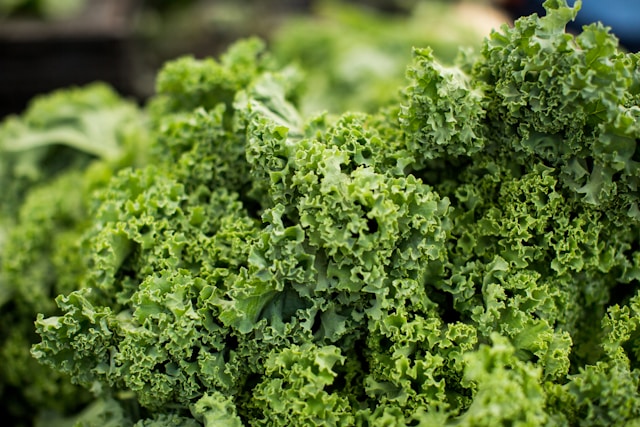Low Blood Pressure – Should You Worry?
August 29, 2018
While blood pressure is normally considered as high blood pressure and bad, low blood pressure exists too and it may also sometimes be bad. It’s a condition when your blood pressure is lower than normal and is also known as hypotension. Earth’s Wisdom today wants to discuss this less commonly known condition with our readers.
Blood pressure keeps changing naturally all through the day because our body keeps adjusting and balancing it constantly to ensure every organ including heart, lungs and brain is receiving ample blood and oxygen.
Low blood pressure is not necessarily dangerous and may not show any symptoms or signify any danger.
Your body position may also cause changes in your blood pressure. E.g. if you suddenly stand up, your blood pressure may drop for a moment. Also when you rest or are asleep, your blood pressure drops.
However, sometimes low blood pressure may be a cause of concern, e.g. in certain health conditions. This can result in too low blood and oxygen to some organs. Treating these conditions can help increase blood pressure.
What Indicates Low Blood Pressure?
Low blood pressure shows the following symptoms:
- Dizziness
- Blurred vision
- Fatigue
- Fainting
- Depression
- Confusion
- Sweating
- Nausea
- Feeling thirsty
- Feeling cold
- Rapid, shallow breathing
- Inability to focus
What’s Blood Pressure Anyway?
Before understanding what is high or low blood pressure, it will be helpful if you understand what blood pressure is. Blood pressure or simply BP as it’s more commonly known as is the force applied by blood on vessel walls.
BP is measured with two numbers of which the first or top number is known as systolic pressure. It is the pressure applied when heart is beating. As you know, heart pumps out blood to make it reach all the organs throughout the body.
The second or bottom number is known as diastolic pressure and it’s when the heart is resting between two beats. Typically this pressure is lower than systolic pressure. The unit of measurement of both these pressures is millimeters of mercury i.e. mm Hg.
A healthy blood pressure is around 120/80 mm Hg. It can change a bit even in healthy individuals. Hypotension is supposed to be a condition when your blood pressure is less than 90/60 mm Hg.
Ways to Increase Low Blood Pressure
Drink Adequate Water
Low blood pressure can sometimes be caused by dehydration. Sometimes even mild dehydration can cause low BP in some people.
Dehydration can also be caused by losing water too fast, e.g. in severe diarrhea, vomiting, excess sweating, strenuous workout and fever. Even diuretics can cause dehydration.
Balanced Diet
If you are not getting nutrients in adequate quantities, your BP may lower. Low intake of iron, vitamin B12 and folic acid can cause anemia which can cause low BP.
Smaller Meals
A big meal can cause low BP. This is more common in seniors. This is because blood flow towards your digestive tract increases. To adjust BP, heart rate increases too. So, eating smaller meals can avoid this rise in BP.
Increased Salt Intake
You should do this carefully and with the advice of your doctor because too much salt can lead to heart disease.
Compression Stockings
These stockings can prevent blood from accumulating in your legs and thus can relieve postural or orthostatic hypotension, i.e. low BP because of sitting too much, lying down or standing.
Conditions that Cause Low BP
These are:
- Anemia
- Diabetes
- Dehydration
- Addison’s disease
- Blood loss
- Heart failure or heart attack
- Problem in heart valve
- Pregnancy
- Head injury or trauma
- Standing up suddenly
- Liver failure
- Parathyroid disease
- Septic shock
- Postural or orthostatic hypotension
What to Do?
If you have low BP once in a while, you don’t need to worry. However, if you have it all the time, you should see your doctor. Keep notes of your symptoms and what you had been engaged into while they took place. From these, your doctor can diagnose the cause of your low BP. If your medication is causing it, your doctor may prescribe you a different one.
Conclusion
In conclusion, while low blood pressure, also known as hypotension, can be a cause for concern, it is not always an indicator of a serious underlying health condition. For many people, low blood pressure is simply a normal variation of their blood pressure levels and does not cause any symptoms or health problems.
However, in some cases, low blood pressure can cause dizziness, fainting, and other symptoms that can impact a person's quality of life. In more severe cases, low blood pressure can lead to shock, which can be life-threatening.
If you are experiencing symptoms of low blood pressure or are concerned about your blood pressure levels, it is important to speak with a healthcare provider. They can help determine the underlying cause of your low blood pressure and recommend appropriate treatment options.
Treatment for low blood pressure may include lifestyle changes, such as increasing fluid and salt intake, as well as medications to raise blood pressure levels. In some cases, treating an underlying health condition, such as anemia or thyroid problems, may also help improve blood pressure levels.
Overall, while low blood pressure can be a cause for concern, it is important to work with a healthcare provider to determine the underlying cause and appropriate treatment options to ensure optimal health and wellbeing.
Leave a comment
Comments will be approved before showing up.
Also in Wisdom News

The Importance of Vitamin K2: Unlocking its Role in Health and Wellness
September 22, 2024

The Importance of Omega-3 Fatty Acids: A Comprehensive Review of Their Effects on the Body
August 02, 2024

The Benefits of Mindfulness Meditation for Mental Health
July 12, 2024
Disclaimer: These statements have not been evaluated by the FDA. These products are not intended to diagnose, treat, cure or prevent any disease.
© 2026 Earth's Wisdom®. All Rights Reserved.




